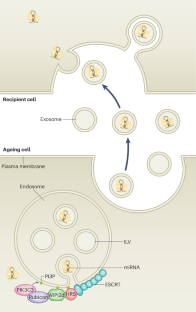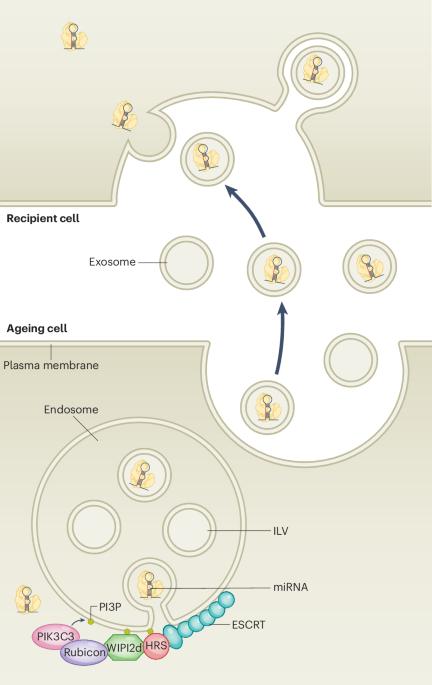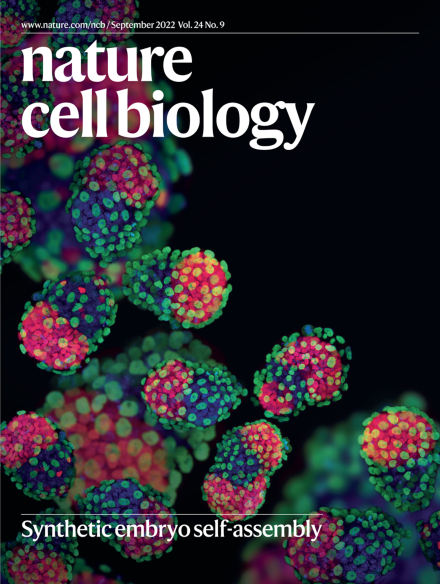外泌体在衰老过程中受卢比肯的调控
IF 17.3
1区 生物学
Q1 CELL BIOLOGY
引用次数: 0
摘要
自噬会随着年龄的增长而减少,这部分归因于自噬抑制蛋白Rubicon水平的增加。细胞生物学家现在发现了 Rubicon 的另一个与衰老相关的功能--释放含有控制衰老和长寿的 microRNA 的外泌体。本文章由计算机程序翻译,如有差异,请以英文原文为准。


Exosome regulation by Rubicon in ageing
Autophagy decreases with age, and this is in part attributed to increasing levels of the autophagy-suppressing protein Rubicon. Cell biologists now find another ageing-associated function for Rubicon — the release of exosomes containing microRNAs that control senescence and longevity.
求助全文
通过发布文献求助,成功后即可免费获取论文全文。
去求助
来源期刊

Nature Cell Biology
生物-细胞生物学
CiteScore
28.40
自引率
0.90%
发文量
219
审稿时长
3 months
期刊介绍:
Nature Cell Biology, a prestigious journal, upholds a commitment to publishing papers of the highest quality across all areas of cell biology, with a particular focus on elucidating mechanisms underlying fundamental cell biological processes. The journal's broad scope encompasses various areas of interest, including but not limited to:
-Autophagy
-Cancer biology
-Cell adhesion and migration
-Cell cycle and growth
-Cell death
-Chromatin and epigenetics
-Cytoskeletal dynamics
-Developmental biology
-DNA replication and repair
-Mechanisms of human disease
-Mechanobiology
-Membrane traffic and dynamics
-Metabolism
-Nuclear organization and dynamics
-Organelle biology
-Proteolysis and quality control
-RNA biology
-Signal transduction
-Stem cell biology
 求助内容:
求助内容: 应助结果提醒方式:
应助结果提醒方式:


